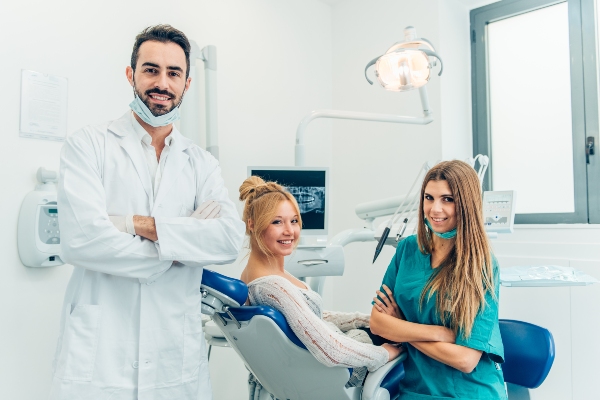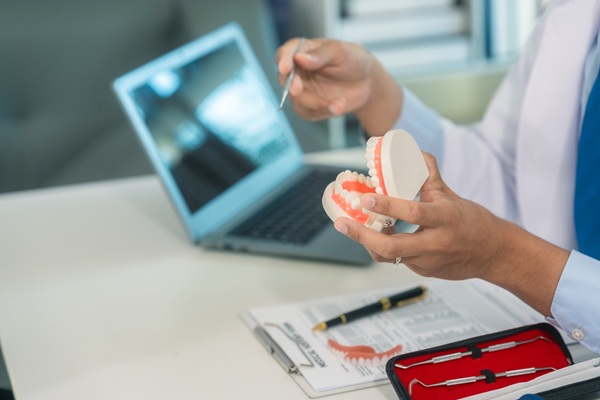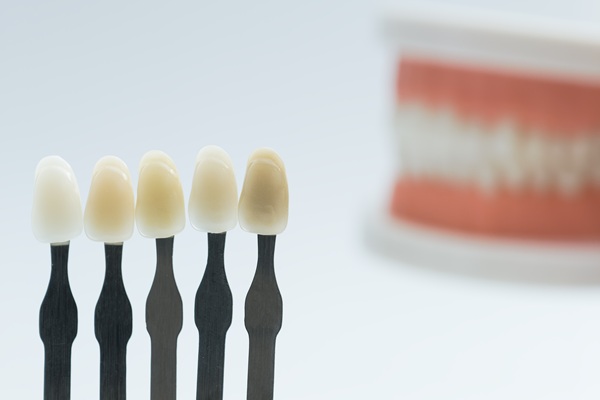 It is well known that routine dental care is essential to the maintenance of a patient’s oral health, but the reasons why are not always as clear. Patients who have questions regarding dental care should consult with a dentist for help in understanding the importance of properly caring for their teeth.
It is well known that routine dental care is essential to the maintenance of a patient’s oral health, but the reasons why are not always as clear. Patients who have questions regarding dental care should consult with a dentist for help in understanding the importance of properly caring for their teeth.
Frequently asked questions about routine dental care
The following are common questions that patients have regarding routine dental care.
1. Why are dental exams important?
Many people do not see the dentist on a consistent, regular basis. Some patients believe that going to the dentist is only needed when there is a problem. However, biannual dental exams are essential as a preventative treatment.
Routine visits involving cleanings, thorough exams, and X-rays can help discover a problem early. For example, a dental exam may be able to catch periodontal disease in the early stages before it has advanced to complications such as tooth and bone loss. Early detection of dental problems can help save teeth and money in the process, as conditions that go undetected and cause serious issues are generally more difficult and expensive to treat.
2. Why is fluoride necessary?
Fluoride, a naturally occurring mineral in many foods, is vital in keeping the teeth healthy and preventing cavities. While it is usually found in water in small amounts, additional fluoride is added to the water supply in most communities to ensure that people receive the appropriate amount necessary for good oral health. This mineral is also added to most toothpastes for extra protection.
Fluoride is one of the easiest ways to help prevent tooth decay and is safe and effective. The mineral acts to strengthen tooth enamel and can even help to reverse the early stages of decay. The benefits are especially important for children, who are more vulnerable to experiencing cavities and tooth decay.
3. How essential is flossing?
It is commonly assumed that brushing is enough to clean the teeth and flossing is not necessary. However, flossing is just as important as brushing the teeth and should not be omitted. Brushing cannot remove all of the food particles and bacteria in the mouth, particularly what collects in the small spaces between the teeth. Flossing is the more effective way to get to the bacteria trapped between teeth. If patients neglect regular flossing, the plaque between teeth may harden into tartar, which can only be removed by a dentist. If tartar is not removed, it may lead to inflamed gums and gum disease.
Flossing can also help to prevent cavities, which can develop in between teeth. Patients should always be sure to include daily flossing in their dental care routine, along with brushing the teeth and using mouthwash.
Conclusion
It is important for dental patients to be proactive about their oral health, as well as to understand why routine dental care is necessary to maintain healthy teeth and gums.
Request an appointment or call Johns Creek Dentistry at 770-623-1427 for an appointment in our Johns Creek office.
Recent Posts
A crucial component of being healthy is routine dental care. When oral health is ignored, harmful bacteria can compromise the rest of the body. Healthy dental practices involve a two-prong approach of visiting the dentist regularly and continuing oral health care at home. Discover more about what is considered routine and effective dental care practices.Making…
Most people understand the importance of regular medical screenings to prevent various illnesses, but many do not realize the relationship between oral health and general health. Routine dental care is an essential preventative measure necessary to ensure good health.Gingivitis and periodontal disease can cause infections that lead to tooth loss, jawbone loss, bite changes, and…
Prioritizing routine dental care is necessary for good health. Unfortunately, some people can find it difficult to care properly for their teeth by brushing, flossing, and seeing a dentist on a regular basis. Patients who disregard dental hygiene and professional care need immediate action to prevent dangerous outcomes.In addition to an unsightly smile, failing to…


